Reducing Business Risk Through Proper Client Billing
No matter what industry you’re in, it’s absolutely essential to maintain good billing practices. After all, timely cash flow is what keeps a business afloat. You can have all of the customers in the world and they can owe you a veritable windfall’s worth of money, but if they’re not paying, then your business is a paper tiger.
The best way to be assured of timely payments is to be organized and have the right tools and personnel in place. To look at it another way, read “Where Does Your Practice Fall On The Medical Billing Risk Matrix?” If you don’t have a medical practice, don’t worry; the principles apply to a number of industries. Here are some factors that can help reduce the risk of non-payment.

An Experienced Staff
Do you have a dedicated employee or department of employees that handles accounts receivable? Or is the task of billing relegated to someone who has an barely-related job in your organization but has inherited the duty, someone like a receptionist?
Not to knock receptionists, but depending on the skill level of the individual, you could have someone who has little to no idea of what they’re doing or how to properly manage accounts receivable. In order to make sure clients are informed about their financial obligations, you need people in place who are experienced.
An Organized Procedure
Invoices needs to go out promptly. You would think that such a concept goes without saying, but sadly, there are businesses and practices out there that drag their feet on sending out bills. The longer you wait to inform people of what they owe, the longer you’ll wait to get paid. Wait long enough, and the appreciation the customer feels for the services rendered, regardless of how grateful and pleased they were at the outset, will have faded with time, resulting in lost incentive to settle the account promptly.
Follow-Up With Late Payers
Speaking of lost incentive to pay in a timely fashion, that segues into the issue of delinquent accounts. As distasteful as it can be, a billing manager or accounts receivable professional needs to keep track of the unpaid accounts and maintain consistent contact with the debtor until the bill is paid.
The Best Tools For The Job
If you’ve established that the best means of billing is to handle it in-house as opposed to, say, outsourcing the work, then you should be sure that the people responsible for collections have the best tools. In this case, it means a good billing/accounts receivable software package. Sure, it’s an expense, but it’s more of an investment than anything else. If having a versatile, easy to use, comprehensive billing suite means better organization and more accurate and efficient billing, then it’s worth the cost.
Offering Incentives For Prompt Payment
While there are customers out there who are irresponsible and treat their financial obligations lightly, there are others who genuinely have difficulty in paying their bills on time. Consider implementing an incentive program where early payment results in a small discount on the balance. If your business levies a finance charge on unpaid balances that are on a monthly payment plan, try waiving the finance charge if the balance is paid before a certain date. These are just two examples of the practice of catching more flies with honey than with vinegar.
Let’s face it; most people really don’t like to talk about money, even if we have every right and reason to do so. By billing clients in a timely and accurate fashion through personnel who are trained and dedicated to the task, in conjunction with maintaining cordial contact with the customers, any business can lessen the pain of the collection process.




